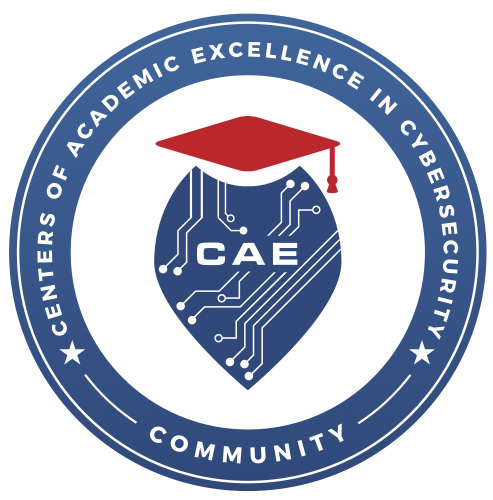Cybersecurity Community Outreach
This summer, CCAP at the University of Delaware powered up cybersecurity learning—bringing students, teachers, and the community into the world of microelectronics and digital defense. Explore the impact of our 2025 Science Programs in this video.

The University of Delaware is a National Security Agency (NSA) accredited Center of Academic Excellence in Cyber Defense Education.

Questions regarding our Spring and Summer Outreach programs? Contact us here at the Center for Cybersecurity, Assurance and Privacy. Email: cybersecurity-info@udel.edu
Active Learning in
Microelectronics
Microelectronics and Cybersecurity Learning Opportunities for Our Community
The University of Delaware’s Center for Cybersecurity, Assurance, & Privacy (CCAP) successfully launched a new initiative funded by the NSF CyberCorps grant to engage students, families, and educators in microelectronics and cybersecurity through hands-on learning.
This past spring, CCAP hosted Microelectronics Week, a Security Competition for student teams, and five Community Science Days (CSD) on Saturdays—all offered at no cost. Each event explored themes in engineering, technology, and microelectronics, and took place at the University of Delaware’s Department of Electrical and Computer Engineering. Participants experienced state-of-the-art facilities, including the iSuite Maker Space and Cyber Range.
In addition, teachers had the opportunity to take part in a specialized program exploring microelectronics through hands-on projects, lectures, and collaboration. Designed to equip educators with classroom-ready tools such as microelectronic kits, the program supported teachers in strengthening STEM education. Funded by the CHIPS and Science Act, the initiative provided a $2K stipend for 20 teachers and offered access to expert faculty and advanced facilities. Due to high demand, the teacher program reached capacity and closed with a wait list.
INFORMAL LEARNING ACTIVITIES
Delaware residents attending public or charter high schools within the School District of Delaware had the opportunity to participate in our community science programs at no cost. The Microelectronics Security Competition was also open to college students.
Our 2025 Microelectronics Community Outreach programs successfully engaged students from across the state. Space was limited, and we were thrilled to see strong participation in these free programs.



H bridge motor drive circuit.

Sparkfun XRP robot.

Drone motion control with accelerometer.

Self-driving car with sensors.

Light-to-frequency microelectronic sensor.
FORMAL LEARNING ACTIVITIES
Program Details
From July 14–18, 2025, high school teachers participated in a week of formal learning dedicated to microelectronics lectures and labs. Over five full days, participants engaged with expert faculty and explored advanced facilities to deepen their understanding of this crucial field.
Funded by the CHIPS and Science Act, the program provided a $2K stipend for 20 teachers, supporting their role in strengthening STEM education. Due to high demand, the program quickly reached capacity and closed with a wait list.
